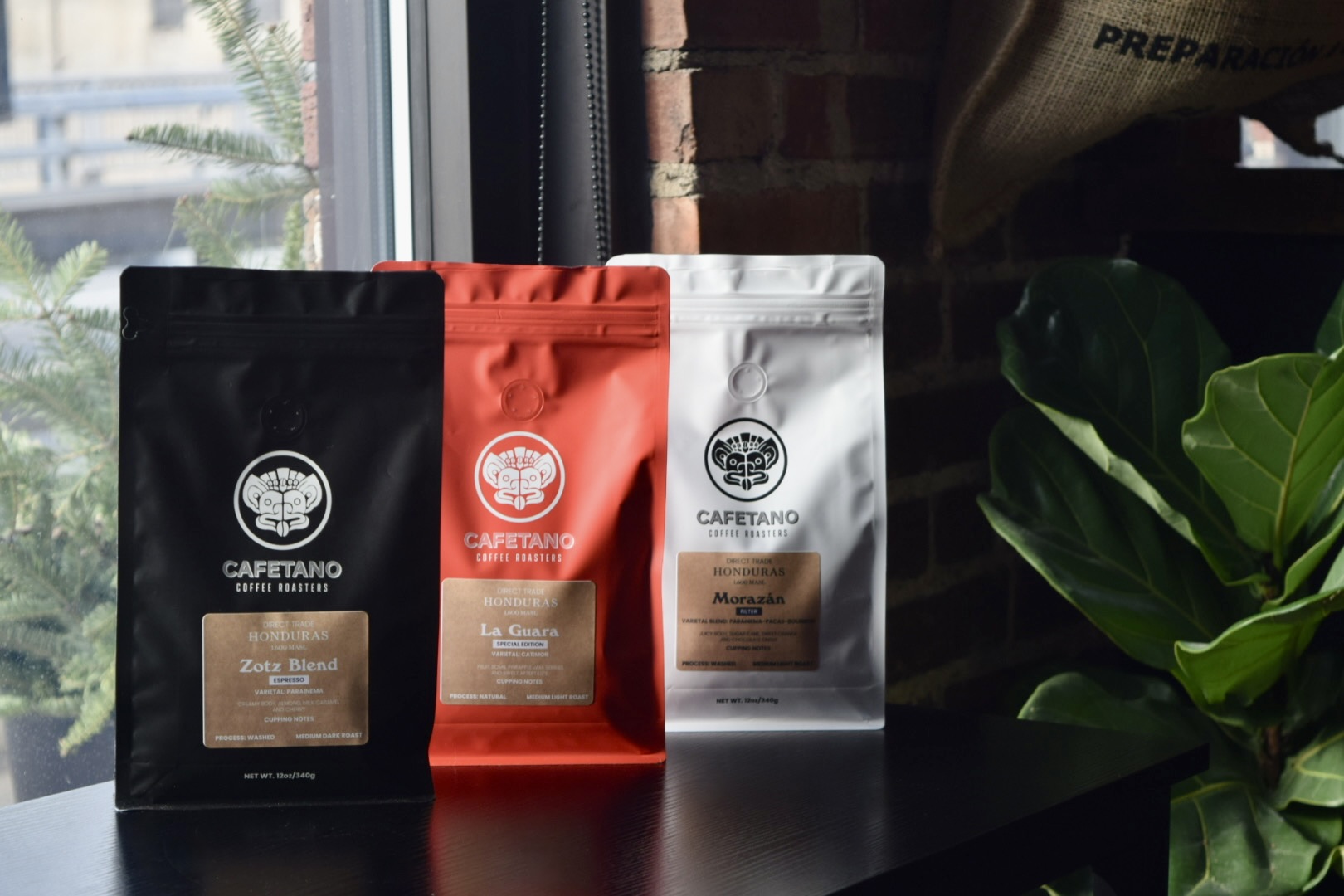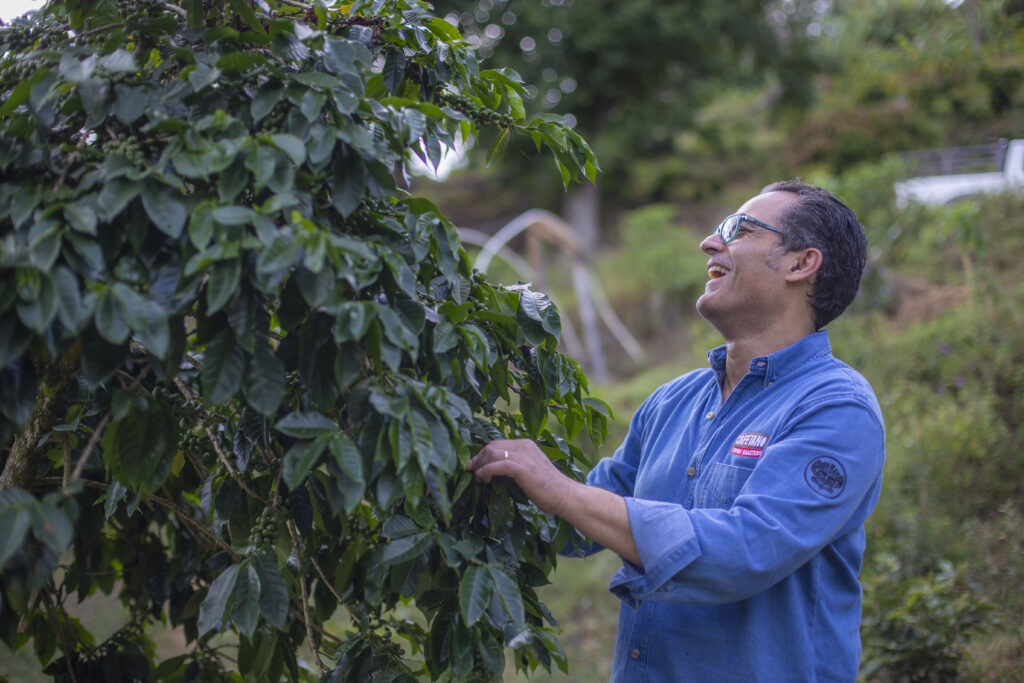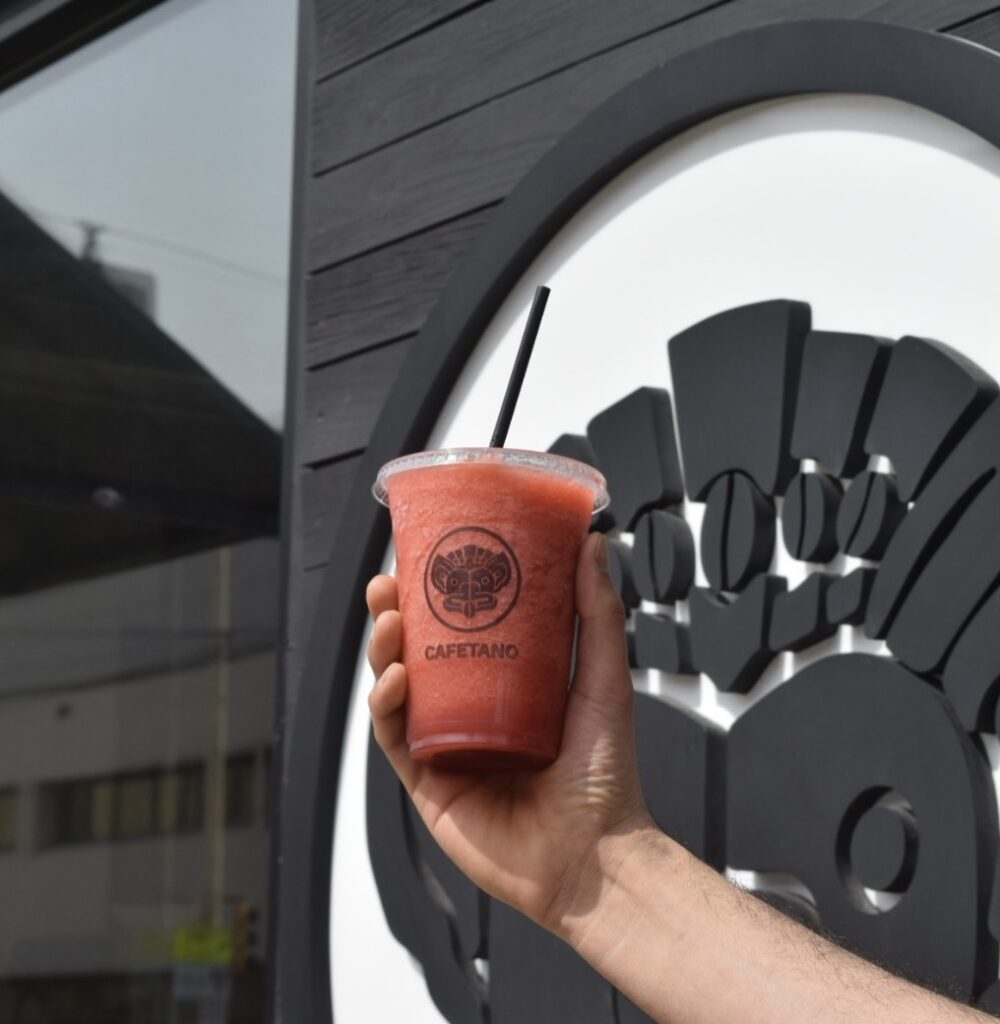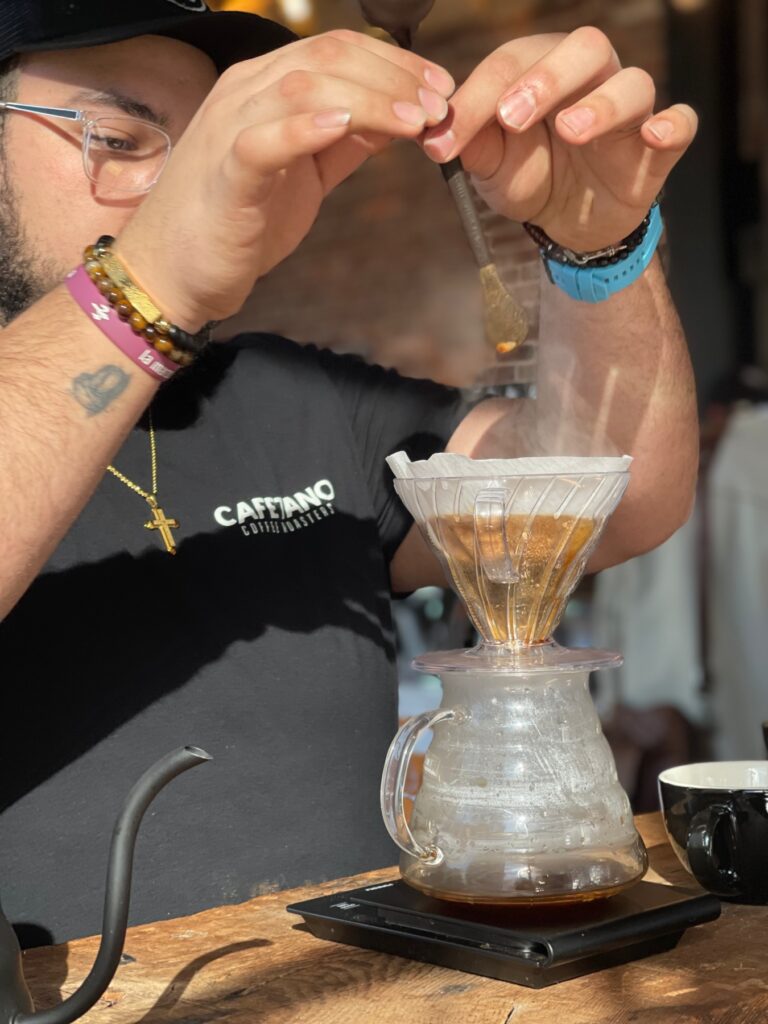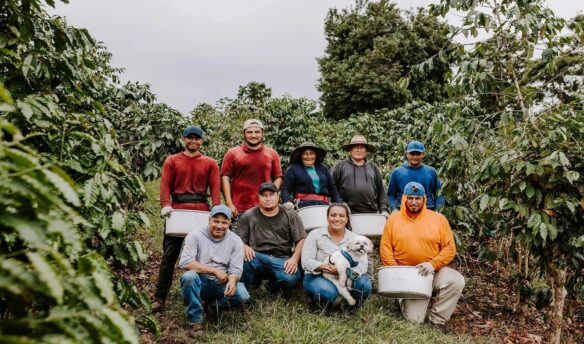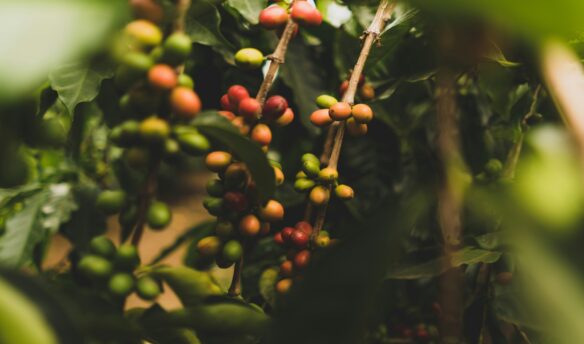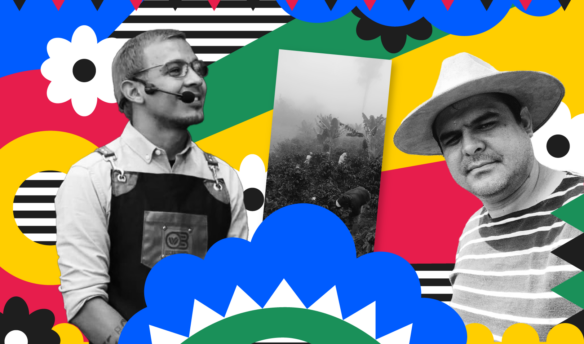For how ubiquitous it is, coffee is a complex crop that goes through many hands before it ends up in your cup. The supply chain is convoluted and opaque, resulting in farmers getting lost in the shuffle, which has real financial ramifications for the people who grow your coffee. Of the $200 billion generated by the global coffee industry in 2015, exporting countries only retained $19.2 billion. That means that the nations—and people—who grow coffee keep just 10% of the value it generates.
But some cafes are turning towards a more vertically integrated formula, opening the door for deeper relationships with farmers and more equitably sharing coffee’s value.
To ensure they wouldn’t get lost along the way, one family-run coffee farm in Honduras decided to step into the retail game in the United States. After opening a few successful shops in Honduras, Cafetano Coffee Roasters replicated their model in Pittsburgh, offering patrons coffee directly from their farms and giving the city a taste of their home.
All In The Family
For Mirko Cuculiza, coffee has always been a family affair. Cuculiza comes from a long line of coffee growers: he grew up on a farm in Honduras and learned the family business from his father. The family has been growing coffee since 1976, but Cuculiza was eager to learn more.
He combined his decades of first-hand knowledge with new ideas and techniques, studying coffee more intently by taking classes with the Specialty Coffee Association (SCA) and receiving a cupping certification from the Honduran Coffee Institute (IHCAFE). In 2015, he opened the first of what would be five Cafetano Coffee locations within Honduras.
As their family brand grew, they began to export their beans globally to countries like Japan, Australia, and Norway. Then, a Pennsylvania businessman stumbled upon a Cafetano location in Tegucigalpa, Honduras, changing the trajectory of the business.
Carl Allison immediately saw potential in Cafetano—and wanted to bring the model back home with him to western Pennsylvania. Allison initially imagined opening up in Pittsburgh’s Strip District neighborhood: an area once home to warehouses adjacent to the downtown district. The Strip District now houses businesses like gourmet shops, grocers, and eateries. The Strip District is only a half square mile but is known to locals and visitors as the city’s multicultural culinary haven.
Cuculiza was impressed. “The neighborhood is so full of culture we knew the cafe could find a home here and thrive,” Cuculiza says. “We take pride in the fact that the cafe is located in such a diverse area of the city.”
Initially, Cuculiza’s family wasn’t sure what to think of Allison’s interest in Cafetano. “My father thought at first his call was a joke,” Cuculiza explained. But soon, they began taking Allison’s proposal more seriously, and Cuculiza asked his daughter Lorella—already living in the US— to move to Pittsburgh to spearhead the project. Soon, Allison and Cuculiza opened the first Cafetano in North America in October 2021.
Vertical Integration
The model at Cafetano’s Pittsburgh location is simple: they ship unroasted beans from Honduras to the shop and roast everything in-house. You’ll find coffees like La Guara, a gesha varietal named after the national bird of Honduras with notes of bergamot and mandarin orange. Their vertical supply chain is integral to keeping cohesion between their cafes both domestically and abroad.
Cafetano isn’t the only coffee shop keeping farmers at the forefront of the process by implementing a vertically integrated business model. In 2012, Café Integral opened its first location in New York City, a vertically-integrated café approaching coffee from a philosophy that “stems from the grower’s perspective and ushers the coffee through from shrub husbandry to perfect brew,” according to their website.
Along with its location in New York, Integral has expanded to Washington DC and Los Angeles, showing drinkers that quality comes from more than the bean itself. In a recent interview with Vinepair, Café Integral founder Cesar Vega noted that the coffee industry impacts over 400,000 families in Nicaragua, and his idea is “to take as much as I can find a home for [it]. What we always wanted to do is put the producer first, pay them great prices, that’s how you create sustainability…as much as we can, we try to buy every last bean that the producer makes.”
Putting the producer first is a concept that Devocion has also been doing since 2006. Their New York City locations work directly with Colombian growers—beans go from growing on plants to your cup within 45 days. Their practices aim to be “excellent for our customers, a fair price for our producers, and the protection of our coffee landscape,” their website explains.
Cuculiza’s Pittsburgh café is no different. The coffee served in both Pittsburgh and Honduras are arabica beans grown on their family farm, sometimes supplemented by beans from neighboring farms. According to Cuculiza, “every coffee variety is cupped at our Cafetano Las Minitas [location in Honduras] and held to a quality standard before being purchased and sold.” The supplemental beans are a way for Cuculiza to purchase directly from local producers, so the value stays within local families in the community. Cuculiza shared that without their contracts, the beans could go to international coffee companies who may offer less for the product and water down the market.
“Coffee farming is a small, close community,” says Cuculiza. “We go straight to the source to ensure the money is going back to the people growing the product we are all consuming.”
Cultural Icons
When opening the Cafetano location in Pittsburgh, Cuculiza was adamant about spotlighting Honduran culture. It was important for the family that the new site would showcase where their coffee comes from to educate their consumers.
“It’s a sense of pride,” Cuculiza says, “as well as a way for us to share with our customers more about where the coffee in your cup comes from.”
Cafetano’s love of culture and country shines through even the small details of their coffee. Cafetano Pittsburgh incorporates brightly colored artwork by Honduran artists in the space and highlights foods made with Honduran ingredients on their menu as a way to connect their businesses. Customers appreciate the care and effort: Cucliza attributes their success in the US to their authenticity and attention to detail.
Cafetano is also committed to quality. The cafe offers coffees prepared on a wide range of brewing devices, from AeroPress to French press, Chemex to Japanese-style pour-over methods. “About 15% of our customers buy filtered methods like the Chemex, v60, [and] Aeropress,” says Cuculiza.
For Allison and Cuculiza, the introduction of Cafetano to the US market has been highly successful. In the future, they hope to expand and that their Pittsburgh Strip District location will serve as their “flagship store,” Cuculiza says, with plans to “open other cafes in the area or think bigger.”
Cafetano balances a lot: they’re working to bring more value to coffee farmers in Honduras while highlighting the beauty of Honduran coffee domestically and abroad. The team behind the cafe hopes their mission resonates and that they’ll continue celebrating Honduran coffee with customers around the globe.
Photos courtesy of Cafetano Coffee Roasters.

